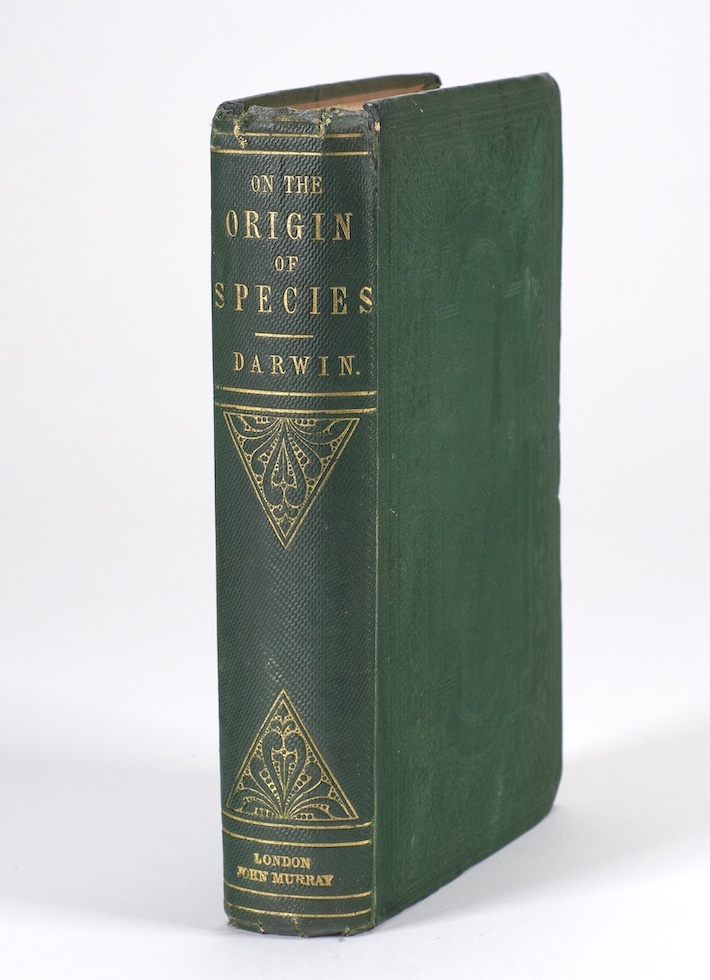On the Origin of Species
DARWIN, CHARLES. On the Origin of Species by means of natural selection, or the preservation of favoured races in the struggle for life.
London: John Murray, 1860
Original green cloth. Light wear to spine ends. A fine copy with the fragile inner hinges intact.
SECOND EDITION, published on January 7, 1860, less than two months after the first edition. Three thousand copies were printed.
On the Origin of Species is “certainly the greatest biological book ever written” (Freeman) and “the most important single work in science” (Dibner).
Darwin’s theory of the origin of species by means of natural selection arose out of his studies in the 1830s during and after the voyage of H.M.S. Beagle. From 1831 to 1836 Darwin sailed around the world on the Beagle. During this five-year voyage, Darwin and the Beagle visited the Galapagos Islands, Brazil, Argentina, Tierra del Fuego, Chile, Peru, Tahiti, Australia, New Zealand, and other islands and countries, finally returning to England by sailing around the Cape of Good Hope. Darwin observed, “It appears to me that nothing can be more improving to a young naturalist than a journey in distant countries.”
The voyage of the Beagle was “the most important event in Darwin’s intellectual life and in the history of biological science. Darwin sailed with no formal scientific training. He returned a hard-headed man of science, knowing the importance of evidence, almost convinced that species had not always been as they were since creation but had undergone change. … The experiences of his five years … and what they led to, built up into a process of epoch-making importance in the history of thought” (DSB).
Over the coming thirty years Darwin refined the ideas that had germinated aboard the Beagle and finally published them in On the Origin of Species. Darwin concluded his book, “There is grandeur in this view of life, with its several powers, having been originally breathed into a few forms or into one; and that whilst this plan has gone cycling on according to the fixed law of gravity, from so simple a beginning endless forms most beautiful and most wonderful have been, and are being, evolved.”
Darwin’s ideas about evolution and natural selection are the underpinnings of modern biological science. Moreover, they have given us a new way of viewing and talking about the world. “Darwin not only not only drew an entirely new picture of the workings of organic nature; he revolutionized our methods of thinking and our outlook on the order of natural things. The recognition that constant change is the order of the universe had finally been established” (Printing and the Mind of Man 344b).
Provenance: nineteenth-century bookplate and signature of William Pearce.
Freeman 376.
$19,000



